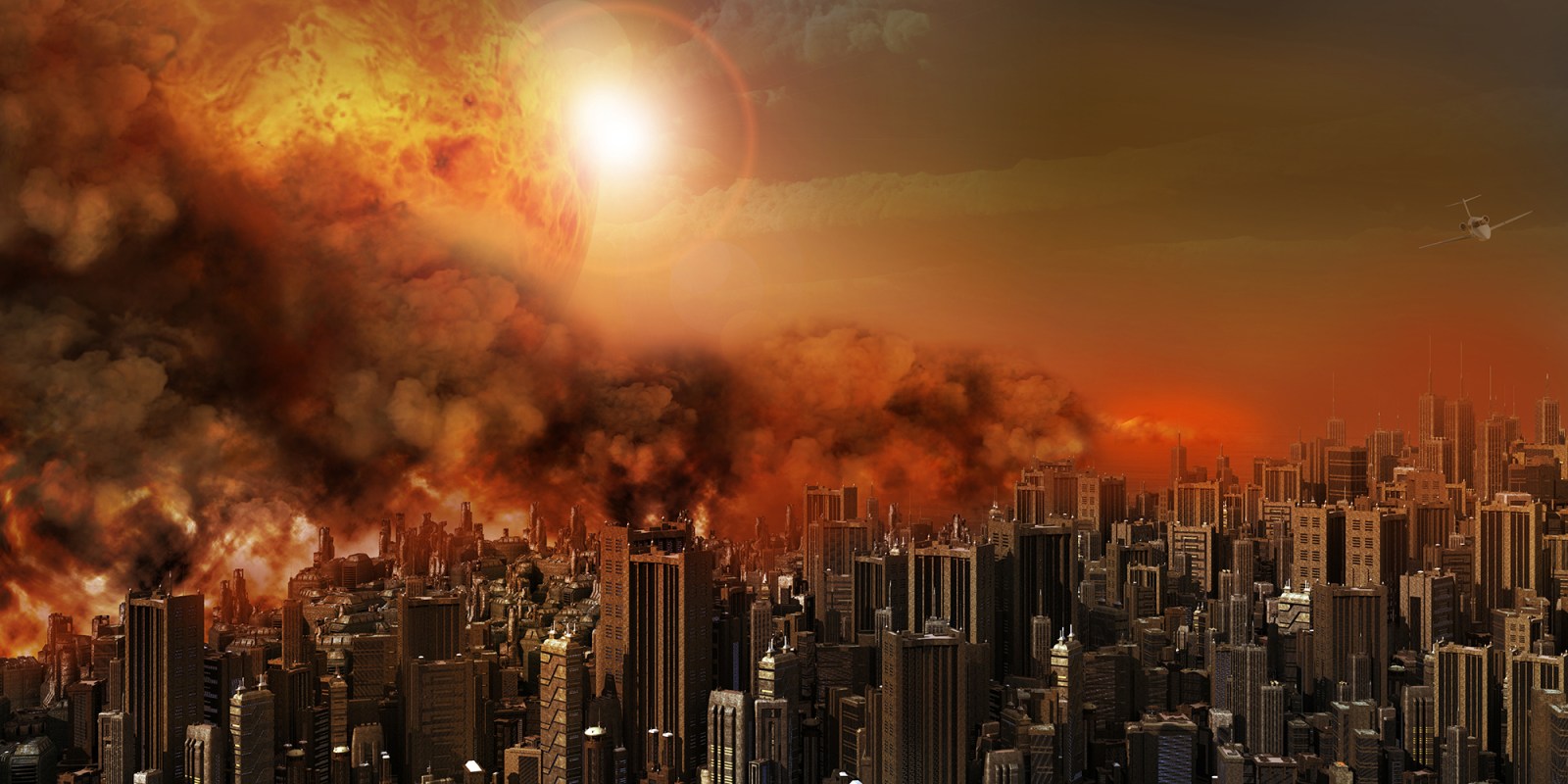
(Image: iStock)
By Tim Cohen
04 Oct 2022 0
Today was a big day for Daily Maverick — we published our first song. It’s an angry diatribe and a bitter warning about the approaching doomsday, claiming that we are on the Eve of Destruction.
Listen to this article
0:00 / 5:57
1XBeyondWords
When our song was first released, it was very much in the style of Bob Dylan’s Hard Rain’s Gonna Fall, written two years earlier in 1962, and follows the same pattern of calling out hypocrisy and injustice, with an underlying message of imminent dystopia. While the original had an anti-war theme, which probably helped popularise the version published as the Vietnam war was escalating, our updated version focuses on climate change.
This all makes me wonder about the utility of doomsdayism. Doomsdayism has a profound history, starting of course with religions of many descriptions. It has such an urgent and powerful pull on your emotions: it’s a common meme in fiction and film.
Malthus
Its first serious scientific proponent was Thomas Malthus, who lived in the late 18th and early 19th centuries. Malthus’s main contribution was a book on population growth, An Essay on the Principle of Population, in which he calculated that humans tended to fall into a trap because whenever there was an increase in food output, it was used to increase population growth rather than improve living standards.
The outcome would be dire, he predicted, because population increased exponentially, but food production increased arithmetically.
So, pretty obviously, his theory turned out to be wrong. Malthus didn’t factor in the productivity increases that stemmed from the industrial revolution, improving crop yields and agricultural methods, and human adaptability. Not only that, but Malthus ended up being on the wrong side of history for other reasons too, since he opposed free trade and supported the protectionist Corn Laws, claiming the tariffs would guarantee British self-sufficiency in food. Very Trumpian, it turns out.
Well, it’s easy to laugh at Malthus now because he was so awfully wrong. But should we? What role did his alarmism play in the adaptability that changed the equation? It’s hard to say.
Horse manure
Try a different example: In 1894, the Times of London predicted that within 50 years, every street in London would be buried under nine feet of horse manure. Population was getting out of control and, since horses were the main mode of transport, there was what we might call a shitstorm. Of course, in less than a decade, the car was invented, and in 50 years, the few horses remaining were historical vestiges. Did the emerging car industry get an inadvertent push from rising levels of horse manure? I’ll bet it did.
The problem with doomsday scenarios is that they tend to engender hopelessness and resignation, when what you want is adaptation. But it turns out the opposite is true, too.
In 2011, linguist and academic Stephen Pinker wrote a book, The Better Angels of Our Nature, demonstrating the decline of violence in modern society, including homicide, cruel punishments, child abuse, animal cruelty, domestic violence, lynching, pogroms, and international and civil wars. The book was very factual, but it nevertheless came as a surprise to many, including me. I had assumed the past 100 years was the most violent period in history, since it included two world wars. Turns out, they were the least violent in history — as far as we can tell.
The book did spark a more generalised reassessment of the state of the world. The World Economic Forum, showing impeccable timing, published in 2019 seven charts that show the world is actually becoming a better place.
The timing might have been off, given the approaching Covid calamity, but the numbers really are astounding. Life expectancy has doubled in the past 50 years; child mortality was about one in three in the year 1800 (it’s now lower than one in a hundred) and GDP per capita in dollars has exploded by more than 10 times everywhere, including in Africa, over those past 50 years, adjusted for inflation.
An extraordinary time
We live, it turns out, in an extraordinary time. This is not to minimise the many problems and issues, including rising inequality in developed countries, and the dangers of a multipolar world. But you have to be wilfully blind not to see how much better off we are than our grandparents.
Yet, optimism has its own dangers, of course. Optimists tend to be complacent, docile and deferential. “Things will get better,” people say far more often than they do get better. Ironically, both doomsdayism and optimism give rise to the same problem: passivity.
In respect of the global warming subject of the revamped Eve of Destruction song, the problems involved in optimism and doomsdayism are both relevant. When I read publications on global warming, I get this very clear sense that I’m being pitched. The message is that the situation is critical but also hopeful, because without being critical your attention might wander, and without hope you might give up.
In truth, and I hate to tell you this, much of the damage done causing the climate emergency is probably irreversible, and although the climate-change targets are achievable, the requirements to do so are gargantuan and therefore chances are pretty slim.
What we can do is stabilise climate change at more or less existing levels, and because Mars is actually quite an unpleasant place to live, we’d better get on with it.
Neither doomsdayism nor optimism serve us here. BM/DM
No comments:
Post a Comment